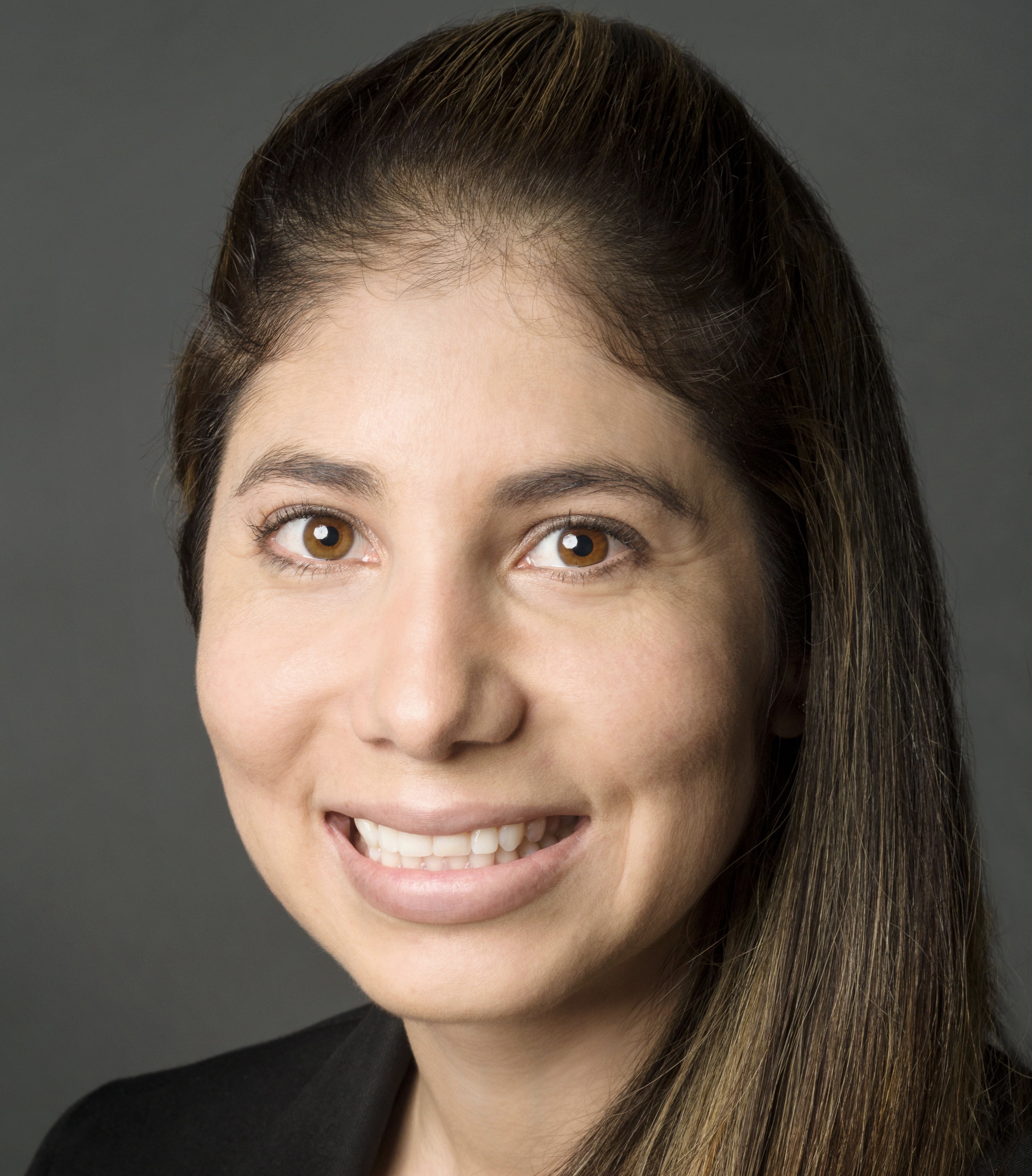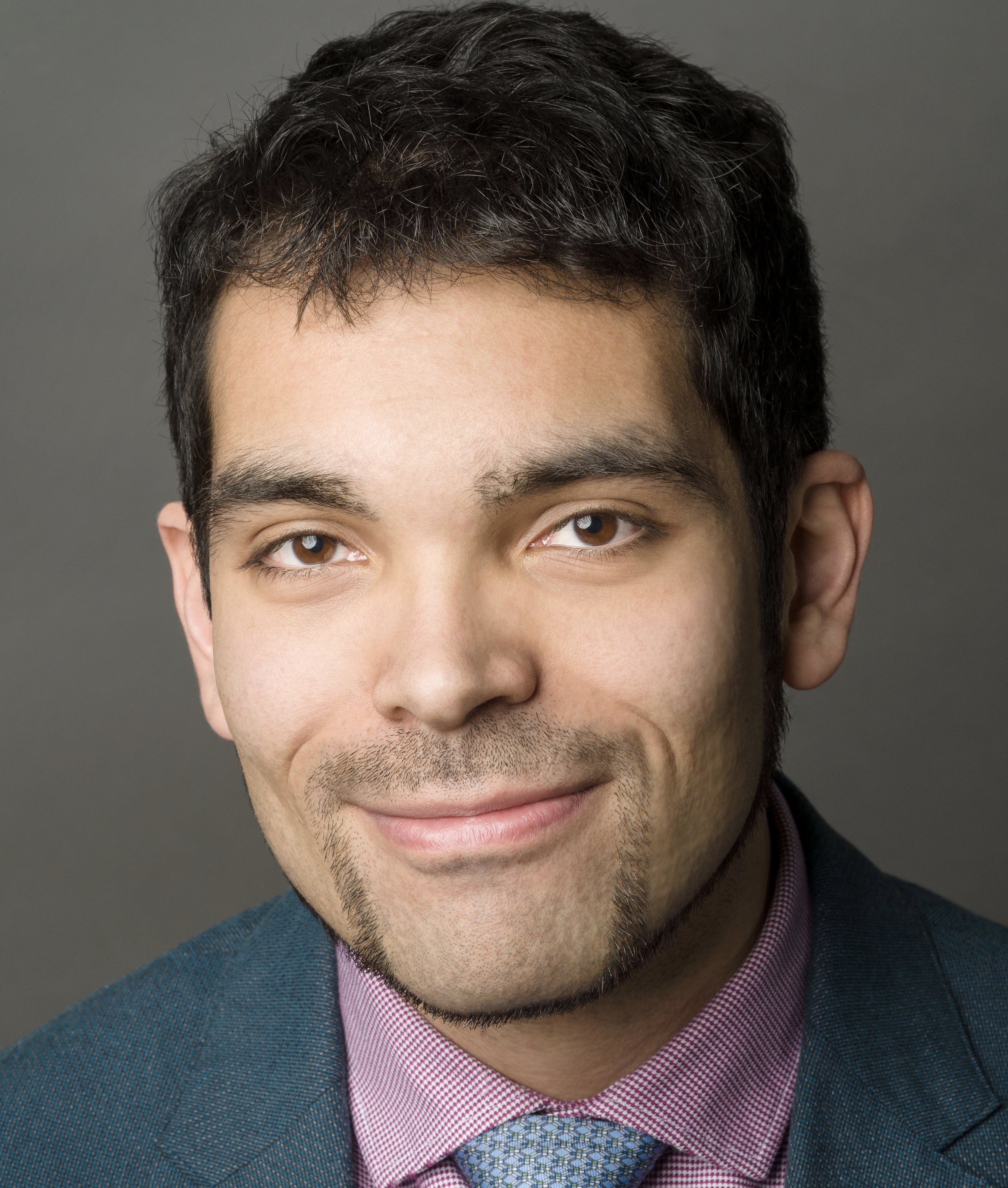Jonathan Marquez and Diana Yanez, both currently in the School of Medicine’s (YSM) MD-PhD program, have been selected as 2018 Soros Fellows.
Marquez and Yanez are among 30 recipients of the Paul & Daisy Soros Fellowships for New Americans. Fellows, all of whom are children of immigrants to the Unites States, Deferred Action for Childhood Arrival recipients, green card holders, or naturalized citizens, were selected from a pool of 1,766 applicants for their potential to make significant contributions to United States society, culture, or their academic fields, and for their commitment to the United States’ fundamental principles and ideals.
Marquez, born in Houston to parents who migrated there from Mexico and Colombia, is a fourth-year student pursuing his MD-PhD in genetics. Yanez, born in California and raised in Tijuana, Mexico, is a third-year student pursuing her MD-PhD in experimental pathology. Marquez and Yanez are joining a YSM family of Paul & Daisy Soros Fellows for New Americans. In its 20-year history, 625 Fellows have been named. With the addition of Marquez and Yanez, thirteen of these Fellows currently attend or are graduates of YSM. Eight of these are or were pursuing an MD-PhD degree; in addition to Marquez and Yanez, these include Parwiz Abrahimi, Daniel Kim, Goran Micevic, Lorenzo Sewanan, Durga Thakral, and Seyedeh Zekavat.
Founded by Hungarian immigrants, Daisy M. Soros and her late husband Paul Soros, this Fellowship honors continuing generations of immigrant contributions to the United States. “Whether it is through scientific discovery, business, literature, medicine, or law, immigrants enrich our everyday lives in the United States in profound ways. As a country, we need to refocus our attention on immigrant contributions,” says Craig Harwood, who directs the Fellowship program.
While incredibly proud of Marquez and Yanez receiving this honor and joining former Yale MD-PhD recipients, Barbara Kazmierczak, director of the MD-PhD program and professor of medicine (infectious diseases), is not surprised that Yale MD-PhD students are such competitive candidates for this prestigious award. This is because of the alignment between many of the Fellowship criteria and the profile of students who are drawn to the program, who exemplify intelligence, drive, passion, and a sustained commitment to contribute valuably to society. "Many Yale MD-PhD students supplement time spent in a research lab with advocacy and activism on behalf of their patients, for science, and for access to care," says Kazmierczak.
Yanez and Marquez are outstanding examples of this ethos, and they each credit their upbringing as having a significant impact on their values and career path.

While volunteering at a community health fair for immigrant communities during college, Yanez overheard an interaction between a physician and patient during which she observed that the language barrier prevented the physician from providing optimal care. Yanez was frustrated to see such barriers, as well as cultural, health insurance, and financial barriers, repeatedly prevent access to quality health care, “and felt the urge to do more.”
Her science coursework and biomedical research experience in college, and continued research after college, during which time she coinvented a system that improves the CRSPR-Cas9 genome editing technology that is used to study disease mechanisms and develop therapies, cemented her desire to become a physician scientist “so that my work will not only improve the health care in the community, but it will also create a foundation from which future generations can benefit.”
Yanez viewed YSM’s MD-PhD Program as an outstanding path to achieve her career goals. She joined HAVEN, the student-run free clinic with a large Latino patient population, in her first year at Yale, because “communication and cultural barriers are prevalent within the Latino population, and crossing them is our responsibility as student doctors. This is crucial for providing optimal patient care.” Yanez also has promoted health awareness through the Neighborhood Health Project, a student-run program that offers basic medical services to low-income patients at a foodbank. “These opportunities to serve my local community have allowed me to continue to progress toward goals that inspired me as a child and motivate me still.”
Yale’s academic resources also have enabled Yanez to thrive. She currently is investigating the role of immune cells in the development of skin cancer in the laboratory of Oscar Colegio, MD, PhD, associate professor of dermatology, transplant, and pathology. Colegio says that “from the moment I met Diana during her interview for the Yale MD-PhD Program, it was clear that she had natural intuition and passion for scientific discovery.” Her long-term goal is to have her own laboratory while practicing oncology. As Yanez explains, “historically underrepresented minorities have been medically neglected in the USA, and this has exacerbated health disparities. I would like to become a physician scientist and spend my career contributing to the development of new cancer therapeutic approaches to improve the standard of care of underserved and underrepresented patient populations.”
Many Yale MD-PhD students supplement time spent in a research lab with advocacy and activism on behalf of their patients, for science, and for access to care.
Barbara Kazmierczak, Director of MD-PhD Program and Professor of Medicine (Infectious Diseases)
Like Yanez, Marquez’s upbringing had a significant impact on his sustained commitment to using science to help society. Growing up, he saw his family navigate economic, language, and cultural barriers, from which he learned a great deal about perseverance. Moreover, he explains “my family’s beliefs and culture has influenced how they interact with the health care system. This has helped motivate me to adapt how I hope to care for patients in a manner that best suits their individual needs.”
When Marquez arrived at Yale as a college freshman, he had never stepped foot on a university campus before. However, he has thrived at Yale ever since. He also has devoted a significant amount of his time to engaging across Yale, and nationally, to encourage other students who may not envision themselves at college, to know that Yale is a welcoming community for people from all different backgrounds, but who share a passion for learning.
Kazmierczak greatly appreciates the time Marquez spends as an ambassador for Yale, and the significant positive impact it has had. This ranges from outreach at science fairs with a national audience, to his serving as a mentor in Yale’s Science, Technology and Research Scholars (STARS) Program, administered by the Yale College Dean’s Office. STARS is designed to support women, minority, economically underprivileged, and other historically underrepresented students in the sciences, engineering, and mathematics. Marquez participated in STARS when he was an undergraduate, and enjoys now serving as a mentor. Marquez also is a graduate affiliate of Timothy Dwight College; in this role he serves as a mentor to students academically, and in their exploration of graduate degree programs.

Marquez’s current research is in Mustafa Khokha’s lab, and is part of the Pediatric Genomics Discovery Program that works with young patients suffering from unknown diseases to investigate genetic causes of their mysterious conditions. With his fellowship, Marquez will study the molecular mechanisms that cause birth defects.
To do this research, patients with birth defects undergo exome sequencing (sequencing of the coding regions of all the genes in the genome), to identify candidate genes that may cause the disease. Unfortunately, for most candidate genes, a plausible disease mechanism is far from obvious since the candidate gene has no known role in embryonic development. Khokha states that “Marquez is tackling this problem and has already made discoveries improving our understanding of birth defects.” Marquez hopes to promote similar approaches throughout his career to ensure they are integrated into pediatric care through equitable innovations in genetic testing, counseling, and treatment.